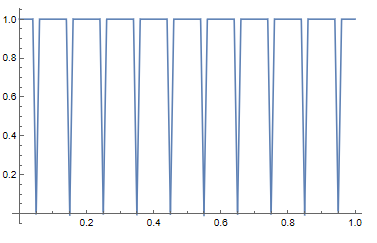Let us have a sequence of functions $\{f^K\}_{K \in \mathbb{N}} \in C([0,1],\mathbb{R})$ which is uniformly bounded in $L^2((0,1))$. We observe a sequence of Riemann sums $$R^K=\frac{1}{K} \sum_{k=0}^{K-1} |f^K((k+\frac12)/K)|^2.$$ Let $R^K$ be uniformly bounded. Can we claim $$\liminf_{K \to \infty} R^K \geq \int_0^1 |f(t)|^2~ dt,$$ where $f \in L^2((0,1))$ is the weak limit of (a subsequence of) $f^K$?
This seems as a wild guess without additional assumptions ("equiconvergence" of Riemann sums to the corresponding integrals), but can't find a counterexample. Any ideas or references?

